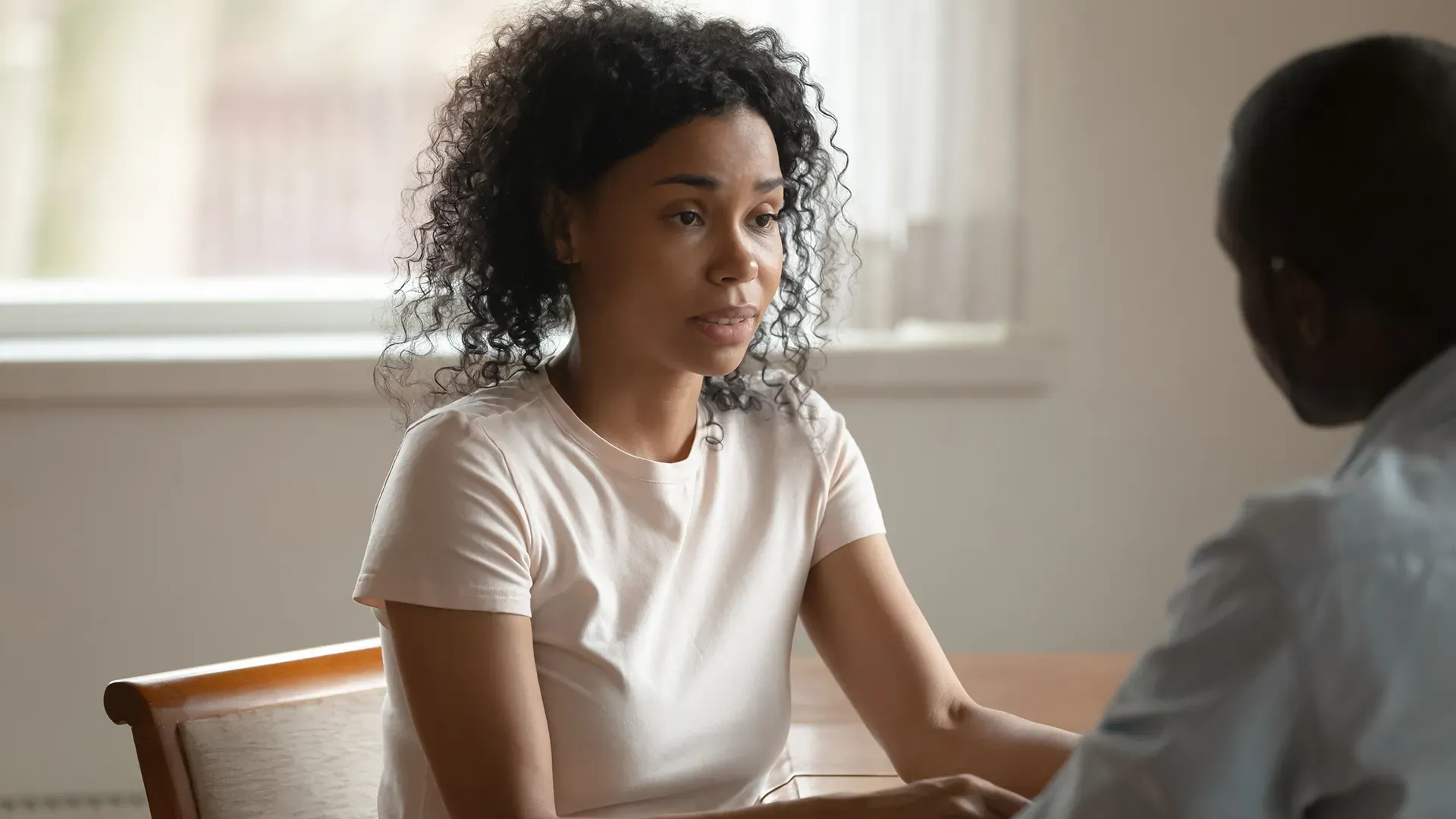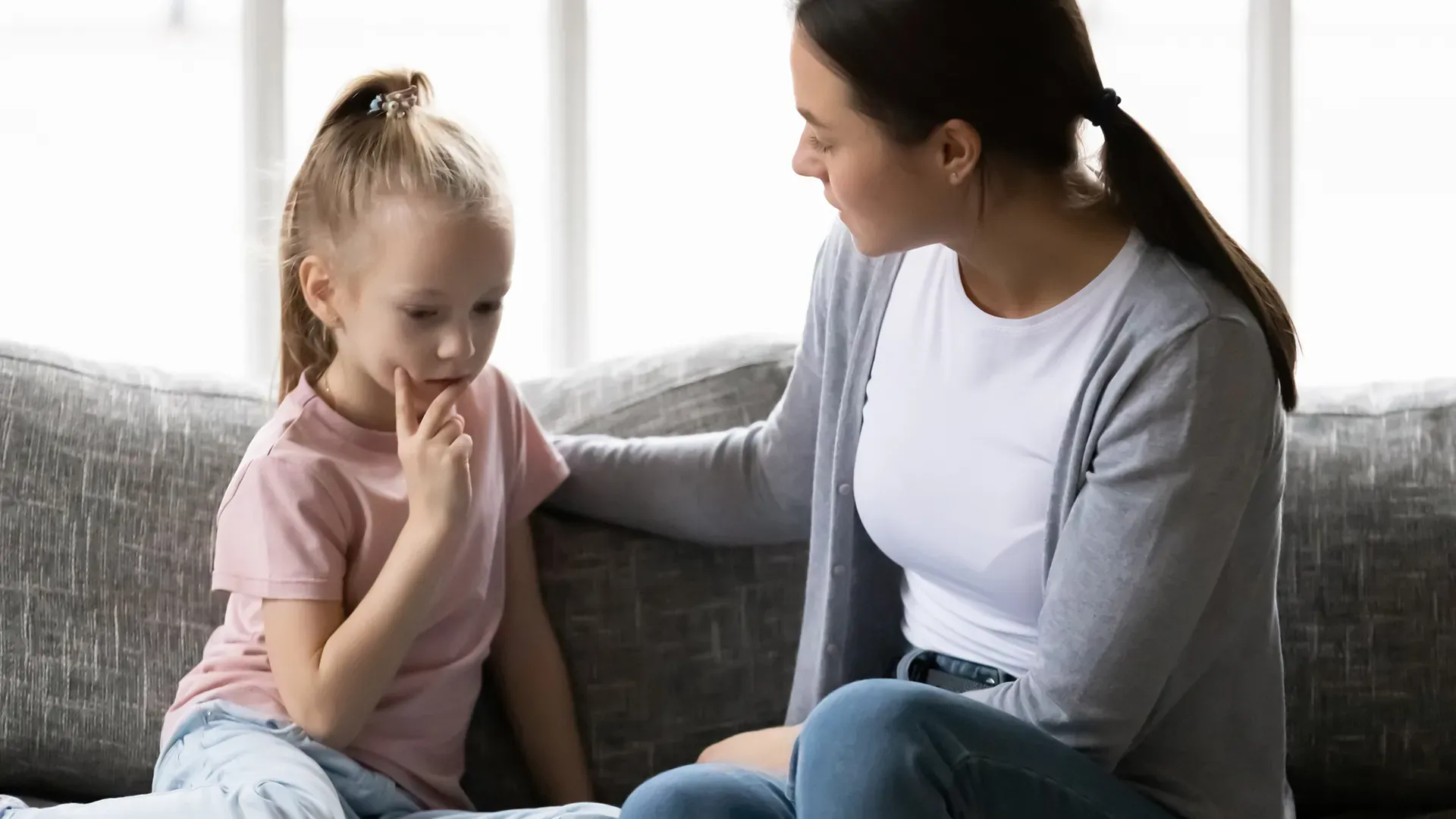What does it mean if I get a positive result?
A positive result means that you have a change in a gene that increases your risk of getting certain types of cancer.1,2 It does not mean that you definitely have cancer, or will definitely go on to get cancer in your life.2
If you know you are at a higher risk of getting cancer, you may have regular check-ups moving forward to look for the early signs. Having regular checks can identify signs of cancer earlier and, if there are any signs, it means you can start treatments earlier, which may improve your response.1,2,3,4
If you have received a positive test result, you may be not sure what happens next.
‘I found out I was a carrier… it was really scary but there were a few options… and I found an incredible community’
Charlie tested positive for a genetic mutation which increased her cancer risk. You can watch Charlie’s full story below
Hi, I'm Charlie.
I'm 26, and I found out that I'm a carrier of the BRCA2 genetic mutation when I was 20 years old.
I first found out that, you know what BRCA actually is because my parents are Ashkenazi Jewish.
My mom's a doctor, and she found out that they were doing a national study on Ashkenazi Jews around the country to find out what the increase was in our chances of being BRCA2 carriers since in our community there's a much higher risk of carrying certain genetic mutations.
My mom sat me down and told me about it and it was really scary at first because we didn't have any history of breast cancer in our family but my dad tested positive after they took part in a national study, and for me it was really terrifying information.
But I knew I wanted to get tested.
I knew that I wanted to start that journey, whatever it looked like and ultimately I felt that knowledge is power when it comes to testing.
And it's really important to arm yourself with as much information as possible.
So when I found out that I was a BRCA2 mutation carrier, what that actually meant for me was that it increased my risk of having breast cancer and developing it, which felt really scary.
And there are few options that I had at that point, either I could do nothing and just sort of hope that I was in that 30%.
I could increase my surveillance and go for regular mammograms and go down that route.
But for me, that felt like it would just produce a lot of anxiety over, you know, every year of my life when I would have to go in for those tests.
And then the third option was to have preventative surgery.
And that's the option that I ended up choosing to do, so when I was 22, I had a preventative double mastectomy where they reduced my risk of carrying, my risk of developing breast cancer, they removed all of my breast tissue and my nipples and put in implants instead.
I'm really happy that I made that decision. And I think that my life would be completely different if I hadn't.
I feel like I have so much more agency. I had so much more control over my body and the risks that I was putting myself in front of.
And I really am a huge advocate for anyone who's considering getting tested for anything that's a genetic mutation, whether that be BRCA or something else in their family.
If I had to give one piece of advice for people going through testing it is to do your best to find someone that's been through this before you, because there will be people.
It might feel like you're alone, but you're absolutely not and it's so important to create a community around you of people that are going to support, know what you've been through, probably know more about it than you do and can show you what life looks like after testing, whether that result be positive or negative, it will be fine.
And actually, I'm really pleased that I got the result that I did because it's meant that I found this incredible community of people all around the UK, and I'm just a huge advocate of testing for that reason.
It is normal to feel a mixture of feelings – perhaps anxiety, overwhelm, worry, anger and guilt. It may be helpful to talk through these feelings with your GP, Genetic Counsellor, or trusted family and friends. This can help you work out what your options are and what is best for you.2,5
What does it mean if I get a negative result?
A negative result means you do not have a gene change that increases your risk of getting certain types of cancer. It does not mean that you will never get cancer, as cancer can be due to a number of reasons.2
You may still be put forward for regular check-ups to look for early signs of cancer even if you’ve received a negative result. This usually only happens when there is a strong family history of certain cancers such as bowel or breast cancer.6,7
If you have any questions, speak to your GP or Genetic Counsellor who will be able to give you more information and guidance.
What is the impact on my family and how do I talk to them about genetic testing?
Talking to your family about genetic testing can be hard. It may bring on lots of emotions. Be prepared that even if you have decided a test is the right thing for you, they may not feel the same way.1,4
The results of your test can have a big effect on your family. If you have a positive result, other family members could also have the same change to their gene and be at a higher risk of getting cancer themselves. This means they will then have to decide whether they want to have a genetic test.1,
You may find different family members react in very different ways. Some might be grateful you have told them and want to get tested themselves. Others might choose not to.2
Talking through your choice to get tested, or your test results, can be helpful. Your family may then support you and be included in making any difficult decisions that might come up in the future. Talking openly can be the best way to understand each other’s feelings and move forwards as a family.2
If you have questions about the result of your test or are worried about telling your family about getting a genetic test, talk to your Genetic Counsellor. They can help you work out the best way to do this.2
References
- Macmillan. Genetic testing for cancer. Available at: https://www.macmillan.org.uk/cancer-information-and-support/worried-about-cancer/causes-and-risk-factors/genetic-testing. [Accessed: June 2025.]
- Cancer Research UK. Getting your genetic test results. Available at: https://www.cancerresearchuk.org/about-cancer/causes-of-cancer/inherited-cancer-genes-and-increased-cancer-risk/getting-your-genetic-test-results. [Accessed: June 2025.]
- National Cancer Institute. Genetic testing for inherited cancer risk. Available at: https://www.cancer.gov/about-cancer/causes-prevention/genetics/genetic-testing-fact-sheet. [Accessed: June 2025.]
- Cancer Research UK. Genetic testing for cancer risk. Available at: https://www.cancerresearchuk.org/about-cancer/causes-of-cancer/inherited-cancer-genes-and-increased-cancer-risk/genetic-testing-for-cancer-risk. [Accessed: June 2025.]
- Macmillan. Family history, genetics and cancer. Available at: https://www.macmillan.org.uk/cancer-information-and-support/worried-about-cancer/causes-and-risk-factors/family-history-genetics-and-cancer-risk. [Accessed: June 2025.]
- Hemminki K., Eng C. Clinical genetic counselling for familial cancers requires reliable data on familial cancer risks and general action plans. J Med Genet 2004; 41: 801–7: doi: 10.1136/jmg.2004.022731
- Tung N et al. Counselling framework for moderate-penetrance cancer-susceptibility mutations. Nat Rev Clin Oncol 2016; 13(9): 581-8: doi: 10.1038/nrclinonc.2016.90






